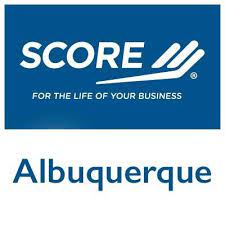Answering the Most Common FAQs About Shareholder and Member Disputes in Florida
In an ideal world, all shareholders or members of a business remain civil and resolve any disagreements with ease. In reality, this is not always the case. These more challenging conflicts are known as shareholder disputes. If you have an Limited Liablity Company (also known as an “LLC”), these types of disputes are called member disputes. Shareholder disputes and member disputes are very similar though governed by different statutes.
When companies cannot resolve disputes internally, they may resort to lawsuits and litigation to seek relief, which can be costly, time-consuming, and disruptive to the business. Not only can these disputes drain financial resources and disrupt operations, but they can also severely damage long-standing relationships between stakeholders, potentially impacting the future of the business itself.
In addition to the financial and relational strain on the parties involved, these disputes place a significant burden on the judicial system. The rapid growth in business across Florida has led to an increase in legal disputes, putting immense pressure on already crowded court dockets. This situation has been exacerbated by the backlog in trial calendars caused by the pandemic, further delaying the resolution of cases and increasing frustration for all parties involved.
How Can Shareholder or Member Disputes Be Resolved Without Going to Court?
Thankfully, there is an alternative that allows businesses to resolve disputes more efficiently and constructively. Alternative Dispute Resolution (ADR) methods, such as mediation or arbitration, provide a less complicated and confrontational approach than traditional litigation. These methods offer a sense of relief, knowing that there are effective steps to consider.
- Mediation: This process engages a neutral third party to facilitate discussions and guide stakeholders toward a mutually agreeable solution. Mediation focuses on preserving relationships and supporting collaboration, making it a constructive option for resolving conflicts.
- Arbitration: A neutral arbitrator hears both sides of the dispute and renders a binding decision. Arbitration is often quicker and more cost-effective than litigation, providing a streamlined resolution without the lengthy delays of court proceedings.
- Revisiting and refining agreements: Reviewing and updating the original shareholder or operating agreement can prevent future conflicts. With the guidance of an attorney, businesses can identify areas of ambiguity, address weaknesses, and redefine roles and responsibilities, ensuring greater clarity and alignment moving forward.
In Florida, where the court system is under increasing strain, exploring these alternative avenues is not just a practical choice–it’s a strategic one. ADR methods not only reduce the stress and cost of resolving disputes but also help maintain the integrity and future viability of the business, allowing all parties to move forward with confidence.
How Can the Majority of Shareholders and Members Protect Themselves from Future Disputes?
Proactively addressing potential areas of conflict is the best way to prevent shareholder and member disputes. By setting clear boundaries and supporting open communication, businesses can protect their interests and maintain harmonious relationships. Here are some key steps to consider:
Establish Clear and Transparent Boundaries
One of the most effective ways to avoid disputes is by setting well-defined boundaries that outline voting power, responsibilities, and dividend distribution. This means that all parties understand their roles and what is expected of them, minimizing the chances of misinterpretation or conflict. Transparency in management decisions, particularly those related to finances and operations, can go a long way toward building trust and accountability, keeping everyone informed.
Promote Open Communication and Transparency
Shareholders and members should prioritize open and honest communication during meetings. Regularly sharing financial reports and discussing key business matters can prevent misunderstandings and foster collaboration. Transparency about obligations and future expectations not only builds trust but also creates an environment where issues can be addressed before they escalate into disputes.
Holding regular meetings is especially important, as they provide a safe space for shareholders and members to voice concerns, propose ideas, and stay informed about the company’s direction. These gatherings can serve as an ongoing platform for strengthening relationships and maintaining alignment among stakeholders, making everyone feel involved in the business’s decisions.
Create Comprehensive Shareholder and Operating Agreements
A well-drafted shareholder or operating agreement is a critical tool for protecting against future disputes. These agreements should clearly delineate the rights, obligations, and responsibilities of each shareholder or member. By addressing potential areas of disagreement upfront, the agreement can serve as a roadmap for overcoming challenges when they arise.
In addition to outlining responsibilities, these agreements can include mechanisms for addressing changes in ownership, voting processes, and the distribution of profits. The more detailed and comprehensive the agreement, the better equipped the business will be to resolve conflicts efficiently.
Include ADR Clauses for Amicable Resolutions
Including ADR clauses in shareholder or operating agreements is a strategic way to make sure that disputes can be resolved amicably. ADR methods like mediation and arbitration are less adversarial than traditional litigation and can help preserve relationships between stakeholders. These clauses establish a predefined process for resolving disputes, reducing uncertainty, and saving time and money.
Florida courts often favor ADR clauses, as they promote stability and long-term collaboration within businesses. By including these provisions, shareholders and members create a framework for resolving disagreements in a way that minimizes disruption to the business.
What Steps Can a Shareholder Take If They Suspect Financial Mismanagement?
If a shareholder suspects financial mismanagement within a company, there are a number of critical steps they should take to protect their interests and ensure accountability. Florida law provides specific rights and remedies to shareholders in such situations. Below are the key actions to consider:
1. Demand Access to Company Records
Under Florida law, shareholders have the right to access certain company records, including financial statements, tax returns, balance sheets, and other relevant documents. If you suspect financial mismanagement, your first step should be to request access to these records.
If other shareholders or company representatives are uncooperative, you can send a Statutory Demand Letter to compel disclosure. This formal demand enforces your legal right to obtain the requested information.
Should the corporation continue to deny access, you may file a court order to enforce compliance. Once the order is granted, the company is legally obligated to provide the requested documentation. This step ensures transparency and allows you to assess whether financial irregularities have occurred.
2. Request an Audit
If your concerns persist after reviewing the initial records, consider requesting a comprehensive audit of the company’s financial documentation. Audits are a powerful tool for uncovering irregularities, such as unauthorized payments, improper allocation of funds, or financial discrepancies.
The findings from an audit can provide clear evidence of financial mismanagement, which may include breaches of fiduciary duties or violations of shareholder agreements. Such evidence can strengthen your position in court if you decide to take legal action.
3. Petition the Court for Remedies
Should the audit or records review reveal significant evidence of financial mismanagement, you may petition the court to take corrective action. Remedies available under Florida law include:
- Forced Redistribution of Responsibilities: Courts may intervene to redistribute roles and obligations among shareholders to prevent further financial mismanagement.
- Dissociation or Removal of a Shareholder or Member: In severe cases, the court may order the removal of a shareholder who is found to have engaged in improper conduct, such as embezzlement or breaches of fiduciary duties.
Taking legal action may be necessary to protect the integrity of the business and ensure that responsible parties are held accountable.
What is Shareholder Action?
Shareholder action refers to legal steps taken by one or more shareholders against other shareholders, company directors, or business owners. These legal actions, often known as shareholder lawsuits, arise when shareholders believe their rights have been violated or the business has been mismanaged.
Shareholders may file a lawsuit for a variety of reasons, including:
- Oppression of minority shareholders
- Violations of shareholder, operating or partnership agreements
- Breaches of fiduciary duties (such as failing to act in the best interests of the company)
- Conflicts between shareholders
- Disputes over pay, dividends, or shareholder contributions
For example, if you believe you have been treated unfairly as a shareholder or suspect that majority shareholders are misappropriating company funds or paying themselves excessive compensation, you can seek legal assistance to address the issue and pursue an appropriate resolution.
How Do You Resolve Shareholder Disputes?
Shareholder disputes can be addressed through two primary types of legal actions: derivative actions and direct actions.
- Derivative Actions: These lawsuits are filed on behalf of the company for harm caused to the business itself. Shareholders take this action to seek remedies for damages that affect the company as a whole.
- Direct Actions: These lawsuits are filed by a shareholder to address the harm they have suffered individually, such as personal financial losses or breaches of their rights.
Under Florida law, certain requirements must be met before filing a derivative action:
- Current or Past Shareholder: You must currently be a shareholder or have been a shareholder at the time the alleged misconduct occurred. Alternatively, you must have received shares through a legal stock transfer from someone who was a shareholder at that time.
- Formal Demand: You are required to write to the company’s board of directors, requesting them to address the issue or correct the misconduct. This step ensures that the company has an opportunity to resolve the matter internally before legal action is taken.
If you are a director, business owner, or majority shareholder, you can prevent shareholder disputes by ensuring all transactions are transparent and properly documented. You can also help stop disputes from becoming lawsuits by addressing all shareholder concerns promptly.
Direct actions can come directly from a shareholder against another party (or parties) within the corporation. Reasons could include corporate officers’ failure to allow shareholders access to documents or violation of ownership rights.
What is an Example of Shareholder Abuse?
Shareholder abuse, also referred to as shareholder oppression, occurs when certain shareholders, often minority stakeholders, feel their voices are ignored or marginalized by the company or its majority shareholders. This can take several forms, such as:
- Decisions made by leadership or majority shareholders that minority shareholders strongly disagree with.
- Withholding critical information from shareholders leaves them in the dark about significant business activities or finances.
- Engaging in unethical or illegal practices that harm the interests of the shareholders or the company.
Under Florida law, shareholders have the right to dissent from actions they disagree with. If no illegal activity has occurred, the usual remedy is for the company to offer to buy out the complainant’s shares at fair value.
However, when shareholders believe a company’s actions have directly caused their shares to lose value, they may take legal action against the responsible parties. These situations can become complicated, as ongoing litigation can further impact share value. For this reason, it’s critical to consult an experienced legal team to understand your rights and determine the best course of action.
When Can Majority Shareholders or Members Be Sued by Minority Shareholders?
Minority shareholders have the right to take legal action against majority shareholders if they believe their rights have been infringed upon or the company’s best interests are being compromised. Common examples include:
- Exposing the company to liability: Actions by a shareholder that put the business at risk, such as breaking laws or breaching contracts.
- Skewing votes: Denying minority shareholders the right to vote or manipulating the voting process to maintain control unfairly.
- Suppressing minority rights: Forcing out minority shareholders or creating a hostile environment to suppress their interests.
- Conflicts of interest: Failing to disclose personal conflicts that impact company decisions.
- Misusing company funds: Financing personal ventures or interests with company resources.
Under Florida Statute 607.0830, any actions taken by a shareholder or corporate officer that benefit only themselves rather than the company as a whole may be considered illegal. Minority shareholders have the right to hold the majority accountable for such breaches of fiduciary duty.
Can Shareholders or Members Be Held Personally Liable?
Yes, shareholders and members can potentially be held personally liable for their actions or inactions. If it’s proven during litigation that their behavior caused financial harm or damages to other shareholders or the company, they could be held accountable. This liability can extend to covering legal fees incurred during the dispute.
Personal liability typically arises in cases of:
- Fraud or illegal activities.
- Mismanagement that harms the company.
- Breaches of fiduciary duties.
By complying with ethical practices and making sure that decisions are made in the company’s best interest, shareholders can reduce the risk of personal liability and litigation. However, when disputes arise, seeking legal counsel is essential to protect your rights.
Are Shareholders or Members Able to Recover Anything?
Shareholders or members who successfully take derivative action are claiming damages on behalf of the company. Therefore, they do not personally benefit — although the continued success and reputation of the company benefit them in the long term and maintain the value of their ownership interest in the company as a whole.
- Derivative Actions: In these cases, damages are claimed on behalf of the company rather than the individual shareholder. While shareholders do not directly benefit financially, the long-term success and reputation of the company can increase the value of their ownership interest.
- Direct Actions: Shareholders who file a direct lawsuit against the company or another shareholder may be able to recover damages that affect them personally. This could include financial compensation, changes to the valuation of their shares, or modifications to the shareholder or operating agreement to reflect new demands.
In some cases, legal action may result in the removal of a corporate officer from their position within the company if their actions have violated the company’s interests or governance principles.
What Are Shareholders and Members Not Allowed to Do?
While shareholders and members in Florida enjoy several rights–such as accessing corporate records, voting on key issues, and receiving their fair share of profits–there are limitations to these rights. Shareholders and members are prohibited from engaging in certain actions, including:
- Suing Over Management Disagreements
Shareholders cannot take legal action simply because they disagree with how the company is being managed. Instead, they can use their voting rights and influence to voice concerns or propose changes. - Challenging Acts That Occurred Before Becoming a Shareholder or Member
Legal actions cannot be filed for events that took place before the individual became a shareholder or member. Additionally, before filing any lawsuit, shareholders must demonstrate that they attempted to resolve the issue internally by addressing concerns with a corporate officer or the board of directors through formal channels, such as a cease-and-desist letter or inspection rights letter unless doing so would clearly be futile. - Unilateral Withdrawal or Dissociation from the Company
In most cases, shareholders or members cannot withdraw or dissociate from the company without the consent of other stakeholders unless such actions are explicitly permitted under the shareholder or operating agreement. - Taking Unilateral Actions Without Approval
Certain actions, such as dissolving the company, selling a substantial portion of its assets outside the ordinary course of business, or admitting a new shareholder or member, typically require either majority approval or unanimous consent. No single shareholder or member can unilaterally take such actions without the necessary voting consensus, as outlined in the shareholder or operating agreement.
The Importance of Avoiding Shareholder Disputes in Florida
Florida experiences more lawsuits annually than any other state, with legal costs exceeding $40 billion. Shareholder disputes can be particularly costly, not only in terms of financial resources but also in the strain they place on business relationships and the company’s future.
The best way to handle shareholder or member disputes is to prevent them altogether by fostering transparency, drafting comprehensive agreements, and addressing concerns promptly. However, when litigation is unavoidable, seeking assistance from an experienced attorney is critical to navigating the complexities of shareholder disputes and protecting your interests effectively.
The Campbell Law Group: Your Partner in Resolving Shareholder and Member Disputes
At The Campbell Law Group, we understand that shareholder and member disputes can be a daunting and overwhelming experience for both businesses and the people involved. Our focus is singular: to help you achieve your goals in any dispute you face. We take the time to carefully assess your circumstances and explain the available strategies, highlighting the benefits and potential drawbacks of each. By doing so, we empower you to choose the path that will yield the best results.
Every case is unique, and so is our approach. We tailor our strategies to your specific needs, analyzing the details of your dispute to determine the most effective and reasonable method of resolution. Whether you’re facing issues related to financial mismanagement, breaches of fiduciary duty, or shareholder oppression, we explore all available options, whether mediation, arbitration, or litigation. Whatever option you choose, we work tirelessly to protect your rights, safeguard your investments, and achieve a resolution that works for you.
Contact the team today to learn how we can help you in resolving your dispute. Whether you’re exploring ADR options or preparing for litigation, our experienced team is here to provide the guidance and representation you need to succeed.





